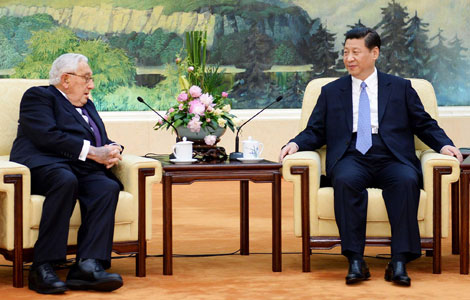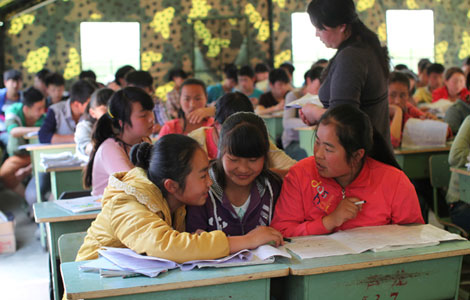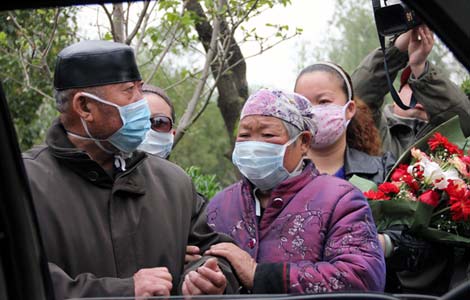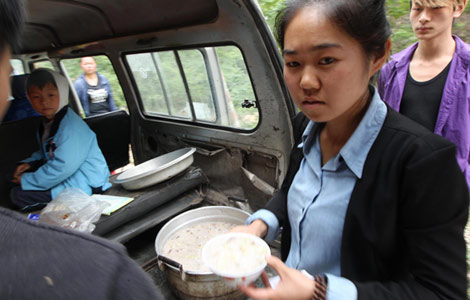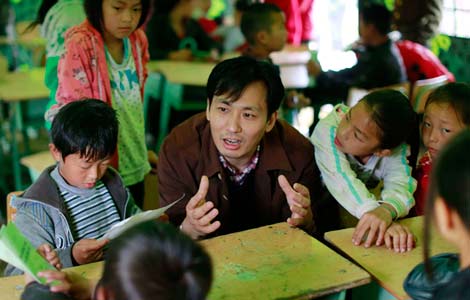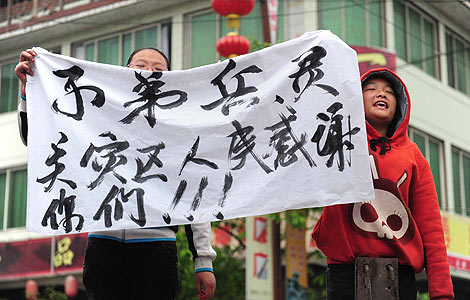Factories to face headwinds from enlarged TPP
Updated: 2013-04-25 02:48
By YU RAN in Shanghai (China Daily)
|
||||||||
Chinese manufacturers are bracing for stronger competition from Southeast Asian production bases that are expected to benefit from a free trade agreement involving the United States and Japan.
The US has invited Japan and some Southeast Asian countries to join the Trans-Pacific Partnership Agreement, which embraces 11 countries, including Chile, Mexico, Australia and Vietnam.
Japan is expected to begin negotiations to join the TPP in late July.
An expanded TPP could trigger a flow of industrial investment in new member states. Analysts said they expect much of that investment will come from Japan, which just launched an aggressive monetary expansion policy to jump-start a recovery.
The Bank of Japan announced on April 4 that it would pump $1.4 trillion into the Japanese economy to stimulate investment and consumption.
The TPP could give Japanese companies an incentive to invest the cheap money available at home in production facilities in new member states in the region, where labor costs are significantly lower than in China. This, analysts said, could pose a strong challenge to Chinese manufacturers, especially those at the lower end of the market.
"Panasonic plans to move up to 50 percent of its production lines in China to emerging Southeast Asian economies such as Thailand between 2006 and 2020,"said Yu Weihao, a manager of Panasonic Electric Works (China) Co Ltd.
Yu added that the same products could be manufactured in those developing economies at lower costs.
Seeing their traditional advantages diminishing, Chinese manufacturers are also planning to diversify their production to emerging markets. Of course, this is not a new strategy. But the pace is seen to be increasing as domestic costs continue to rise.
"We've realized that our products with respectively low prices are no longer able to attract new clients as more factories in emerging economies like Vietnam and Thailand are making cheaper items thanks to lower labor costs,"said Zhang Beilei, the owner of Wenzhou Gaotian Shoe Co Ltd.
Nearly 50 percent of Zhang's shoes are exported to regular clients in Japan, who have gradually reduced their orders since the end of 2009.
"The proportion of our output exported to Japan has fallen from 70 to 50 percent, and is likely to get even smaller if Japan joins the TPP,"Zhang said.
Most Viewed
Editor's Picks

|

|

|

|

|

|
Today's Top News
Sluggish growth takes its toll on foreign lenders
Investors find a home in overseas real estate
More Chinese travel overseas, study reveals
Xi meets former US heavyweights
Li in plea to quake rescuers
Canada to return illegal assets
Beijing vows to ease Korean tensions
Order restored after deadly terrorist ambush
US Weekly

|

|
